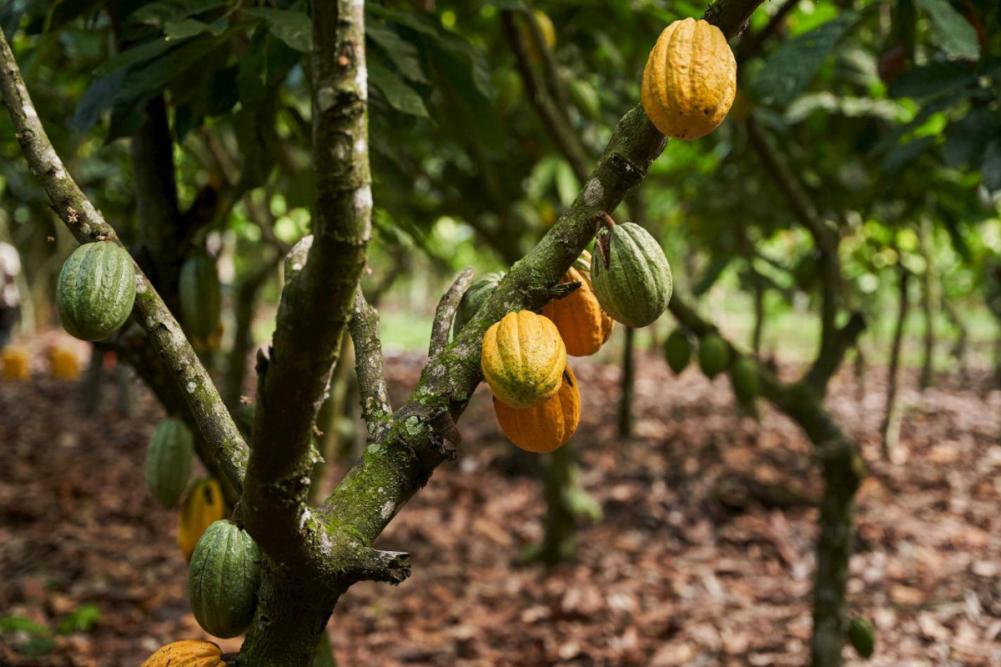Barry Callebaut reported progress in making cocoa farmers aware of child labor problems and helping the farmers out of poverty in its fourth annual Forever Chocolate Report released December 3. Success also was found in reducing deforestation and the company’s carbon footprint.
The full report may be found here.
Barry Callebaut, which manufactures chocolate and cocoa products, seeks to eradicate child labor from its supply chain by 2025. This year the company continued to roll out child labor monitoring and remediation systems based on an industry practice developed by the International Cocoa Initiative. Barry Callebaut’s systems cover 113 farmer groups, including 39,909 farmers in the Ivory Coast, Ghana and Cameroon. The company in 2019-20 trained 94,946 farmers on child labor awareness.
In the 2019-20 fiscal year ended Aug. 31, Barry Callebaut found that 22,965 cases of child labor in its cocoa supply chain were under review. The number of cases increased this year because of a new broader definition of what constitutes the worst forms of child labor in Ghana.
Barry Callebaut has a goal of helping 500,000 cocoa farmers out of poverty by 2025. The company has increased census interviews with cocoa farmers to 291,377. The interviews focus on socio-economic data and household data.
The company also maps the geographical locations and the size of cocoa farmers to gain data for farmers. The number of farmers with full data rose to 181,861. Through the mapping, farmer business plans are made that consist of tailor-made offerings for each farmer, such as individual coaching, agricultural inputs, tools and diversification. This year 41,178 farmers adopted farmer business plans.
Barry Callebaut uses the International Poverty line definition of extreme poverty, which is $1.90 per day. The company estimates that in 2019-20 143,233 farmers in its supply chain were out of poverty.
To end deforestation, Barry Callebaut maps cocoa farms in its direct supply chain within 25 kilometers (15.5 miles) of protected forest areas in the Ivory Coast, Ghana and Cameroon. This year the company mapped 52,558 farms.
Barry Callebaut has a goal of becoming carbon positive by 2025, meaning it will store more carbon than it emits. Carbon reduction efforts in the fiscal year ended Aug. 31 led to a reduction of more than 8% to 7.8 million tonnes of carbon dioxide equivalent from 8.5 million tonnes. Land use change, increased sourcing of certified ingredients and reduced carbon intensity in factories drove the achievement. Among the company’s 61 processing plants, more than a third are fully powered by renewable energy.




